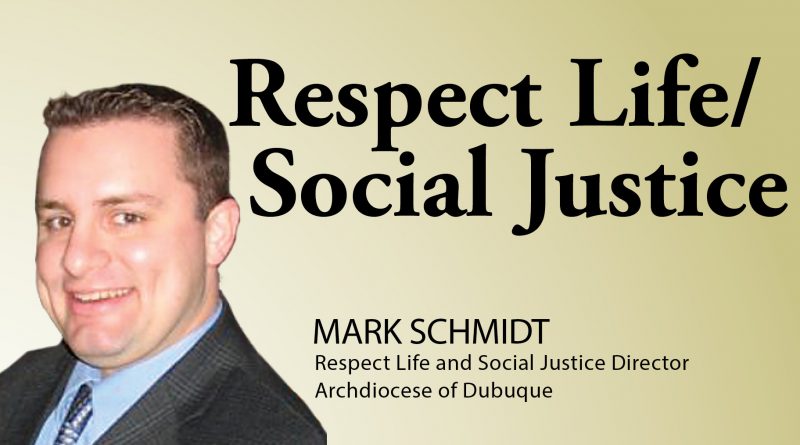Reflecting on the violence in Charlottesville
Last weekend, Neo-nazis, fascists, Klansmen, white supremacists, neo-confederates and other hate groups converged on the city of Charlottesville, Virginia, and in their wake left one young woman dead and many others bleeding and critically injured. Their message of hate and acts of violence and terrorism instilled fear in many thousands more. Our Catholic faith and our local church, the Archdiocese of Dubuque, condemns such violence and such ideology as it is intrinsically evil. It is sinful and has no place in our world. As Scripture tells us: “Everyone who hates his brother is a murderer.” (1 John 3:15)
Since last weekend I have heard comments of shock and disbelief that, here in 2017, this is actually happening. “I thought we were past this.” “This is not who we are.” “I can’t believe this.” I have yet to hear or read any of those same statements from my friends who are black, brown, migrants, Muslim or from other marginalized groups. That is because they are daily reminded that they are in the demographic minority, and they are regularly subjected to this kind of hate and violence. So, I have not heard shock from them. I have heard their sadness, fear, anger, frustration and hopelessness, but not shock.
How did we get to this point? Many are trying to understand the answers to this question. For people on the receiving end of hatred and violence this is only a continuation of what they have collectively experienced since the very beginning of our country: slavery, the slaughter and transfer of native peoples to reservations, Black Codes, the Chinese Exclusionary Act, Jim Crow, the “Southern Strategy,” segregated housing, mass incarceration, the myth of the “welfare queen,” an inhumane immigration system, patently false claims of widespread voter fraud by “the other,” and so on. We find symbols and messages in movies, television, newspapers, magazines and on social media that only deepen this pit of prejudice and injustice and spread false narratives about various peoples. All of these things have us swimming in messages that reinforce bias and at the same time keeps us physically apart from sharing community with people who are do not share our same background or experiences.
“And while they were eating, he said, ‘Amen, I say to you, one of you will betray me.’ Deeply distressed at this, they began to say to him one after another, ‘Surely it is not I, Lord?’” Matthew 26: 21-22
While we know that Judas is known as the betrayer we also know that all of the other apostles would betray Jesus, save John, by the end of the following day. Those who fell asleep at Gethsemane, betrayed Jesus. Peter betrayed Jesus three times before the cock crowed. And the others remained absent from his presence during his passion and crucifixion for fear of what would happen to them.
However, unlike the other apostles, the women and John bore the threats and violence in the difficult task of supporting Jesus in his darkest hour. Are we like the apostles who immediately look to shift blame or free ourselves of any responsibility for the institutions and the culture that we are living? I am not innocent in this regard. We protest, “Surely, it is not I, Lord!” because we do not hold explicit prejudice towards others but if we are to overcome the racial hatred and violence in our country we must look to the women and John as our example. We often lack the courage and conviction, myself included, to take a moment to reflect introspectively on how we may, even in tiny ways, contribute to the injustice or oppression of others for we are not only responsible for “what I have done” but also “what I have failed to do.” When our words or actions are challenged related to racial injustice how quickly are we to reply, “Surely, it is not I, Lord!” Do we take the hard task to ask ourselves and Christ, “Is it I, Lord? How may I better serve you and your people?”
It is essential that we not only openly reject and denounce racism but actively work to counter it. We must repudiate racist actions and speech, including racially charged “harmless jokes.” We must learn to recognize symbols and messages that reinforce explicit and implicit bias. We must open ourselves to hearing the stories and experiences of those who share a different background than our own. We must listen to the messages of those who have been on the receiving end of oppression and injustice. My office is available for resources, and I am available to offer presentations, workshops and retreats to your parish, school, community or organization to better understand what is going on, how we got to this point and what we can do about it. These conversations are not easy, but they are necessary.



